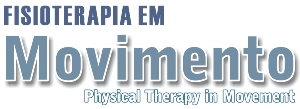Abstract
Introduction:
Spinocerebellar ataxia 3 (SCA3) is a hereditary disease associated with progressive cerebellar and extracerebellar degeneration. Although there is no effective therapy for SCA3, some of its symptoms can be relieved with symptomatic treatment. Identifying the presence of this signs in patients may contribute to their clinical management and thus improve their quality of life.
Objective:
To identify the presence and frequency of non-ataxia signs in a sample of Brazilian individuals with SCA3 and to investigate its association with severity and duration of the disease.
Methods:
This is a cross-sectional study. The inclusion criteria of this study were participants should be diagnosed with SCA3 and be between 18 and 70 years old. The exclusion criteria were participants with a score of less than 18 points on the Mini Mental State Examination (MMSE) and those with other neurological or orthopedic problems. Twenty-three participants were evaluated by the Inventory of Non-ataxia Signs (INAS) and the Scale for the Assessment and Rating of Ataxia (SARA).
Results:
The median score found for INAS was [median (min-max)] 3 (0-6) points and 10 (2-23) for SARA. Only one participant did not show non-ataxic signs. The most prevalent non-ataxic manifestations were areflexia, urinary dysfunction, hyperreflexia and spasticity. Spearman correlation test indicated a moderate and significant correlation between INAS and SARA scores (rho = 0.428, 95% CI = 0.39-0.704, p = 0.033). There was no association between INAS scores and the disease duration (rho = 0.003, 95% CI = -0.398-0.704, p = 0.393).
Conclusion:
Areflexia, urinary dysfunction, hyperreflexia and spasticity were the most prevalent non-ataxic signs. We identified a moderate correlation between the presence of non-ataxic signs and disease severity. This findings can help the professionals dealing with these patients.
Keywords:
Ataxia; Spinocerebellar ataxia type 3; Machado-Joseph disease; Signs and symptoms

 Thumbnail
Thumbnail
 Thumbnail
Thumbnail
 Note: SCA = spinocerebellar ataxia.
Note: SCA = spinocerebellar ataxia.
